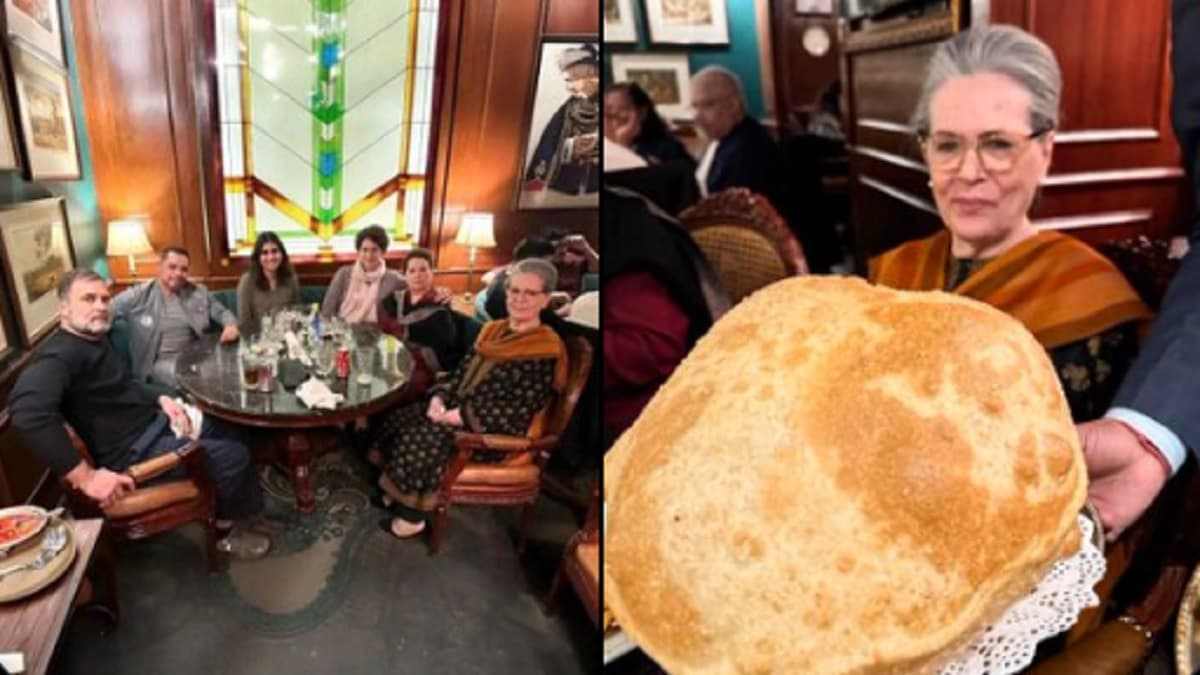 |
|
The provided article offers a brief glimpse into the personal life of the prominent Gandhi family, specifically Rahul Gandhi, Priyanka Gandhi, and Sonia Gandhi. Following months of intense campaigning for both the Lok Sabha and Assembly elections, the family chose to spend their Sunday in a relaxed and informal setting. This seemingly simple act of enjoying a meal together holds significant weight when considering the relentless pressure and scrutiny under which the family constantly operates. The choice of Kwality Restaurant, a well-known Indian establishment, suggests a preference for familiar and comfortable surroundings, a stark contrast to the often formal and public appearances demanded by their political roles. The specific mention of Chole Bhature, a popular North Indian dish, adds a relatable and humanizing element to the narrative, positioning the Gandhi family not merely as political figures, but as individuals enjoying a simple, shared experience.
The significance of this seemingly innocuous event cannot be understated within the broader context of Indian politics. The Gandhi family's public image is constantly under the microscope, every action scrutinized and analyzed for political implications. A seemingly private moment, such as a family meal, becomes a public event, open to interpretation and speculation. The choice of restaurant, the dish they ordered, even the reported ambiance – all become potential talking points and fodder for political commentary. This incident highlights the inescapable scrutiny faced by prominent political figures and their families, constantly balancing their personal lives with the demands of public service. The seemingly mundane act of eating Chole Bhature becomes a microcosm of the complexities of being a public figure in India's vibrant and often turbulent political landscape.
The contrast between the rigors of election campaigning and the relaxed atmosphere of a family meal further emphasizes the human cost of political ambition. The grueling schedule of campaigning, the relentless pressure to maintain a positive public image, and the constant exposure to political maneuvering take a toll. The article subtly suggests a much-needed respite, a moment of normalcy amidst the whirlwind of political activity. This brief respite underscores the significance of balance and the importance of personal time, even for individuals who dedicate their lives to public service. While seemingly trivial, the act of enjoying a simple meal serves as a powerful reminder of the human element underlying the complex political dynamics at play.
Furthermore, the article's brevity itself speaks volumes. It is precisely the lack of detail that fuels speculation and discussion. The simplicity of the reported event allows for a multitude of interpretations, each colored by the reader's own political leanings and perspectives. This ambiguity reinforces the powerful influence of even seemingly inconsequential events in shaping public perception. The news itself becomes a reflection of the public's interest and the degree to which even private family moments are deemed newsworthy in the lives of highly influential political families.
In conclusion, while the article appears to be a simple account of a family meal, it subtly reveals layers of political and social commentary. It highlights the constant scrutiny faced by influential political families, the human cost of political ambition, and the power of seemingly insignificant events to shape public opinion. The seemingly simple act of enjoying Chole Bhature becomes a potent symbol of the complexities of public life in India and the enduring fascination with the personal lives of its political leaders.
Source: ⚡Rahul, Priyanka and Family Relish Chole Bhature at Kwality Restaurant; Sonia Gandhi Joins Them
